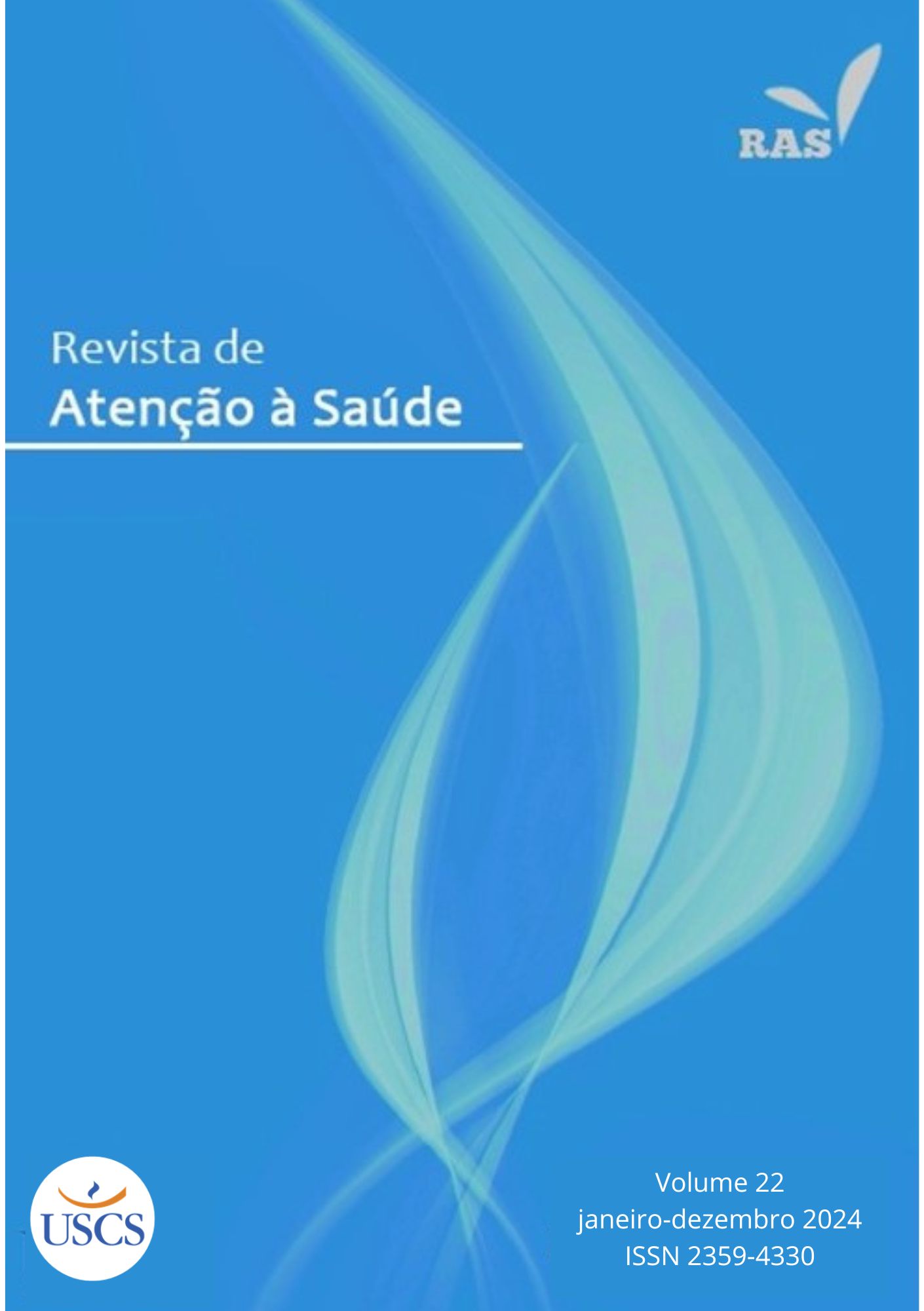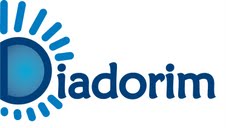INFORMAL CAREGIVERS OF PATIENTS AFFECTED BY STROKE: STRATEGIES FOR REDUCTION OVERLOAD
Reduction of overload in informal caregivers of patients with stroke
DOI:
https://doi.org/10.13037/ras.vol22.e20249012Keywords:
Carga de Cuidar. Estratégias de Saúde. Fardo do cuidadorAbstract
Introduction: The act of daily care for patients affected by stroke is challenging and requires pluralistic knowledge, ranging from techniques related to health care, to psychological issues. Generally, these caregivers report several complaints, physical, mental and social problems in the act of caring for this patient. Objective: Identify possible strategies described in the literature that seek to reduce the physical, mental or social overload of informal caregivers of patients affected by stroke. Method: This is an integrative literature review, carried out between September 2022 and January 2023, with the following guiding question: What Can strategies described in the literature reduce the burden of informal caregivers of patients affected by stroke? The search was carried out in PubMed, SciELO and VHL databases. Results: 533 studies were found during the search, of which eight studies were selected to discuss the results. The summed total sample of informal caregivers was 687, with a mean age of 50.8 years; being 502 (73.07%) women and 185 (26.92%) men. The main strategies found in the literature were: health education in different ways (psychoeducation, guidance via telephone call, verbal guidance) and progressive muscle relaxation. Conclusion: There are strategies that aim to reduce the physical, mental and social burden of informal caregivers of patients affected by stroke. However, further studies are needed to address these strategies, especially studies that report in more detail the interventions performed.
Downloads
References
De T, Botelho S, Diniz C, Neto M, Longo Correia De Araújo F, Campos De Assis S. Epidemiologia do acidente vascular cerebral no Brasil. Temas em Saúde. 2016;16:361-377.
World Stroke Organization. World Stroke Organization Annual Report 2021.; 2021. doi:https://www.world-stroke.org/assets/downloads/Annual_Report_2021_online_latest.pdf
Cameron JI, O’Connell C, Foley N, et al. Canadian Stroke Best Practice Recommendations: Managing transitions of care following Stroke, Guidelines Update 2016. International Journal of Stroke. 2016;11(7):807-822. doi:10.1177/1747493016660102
Fryer CE, Luker JA, Mcdonnell MN, Hillier SL. Self management programmes for quality of life in people with stroke. Cochrane Database of Systematic Reviews. 2016;2016(8). doi:10.1002/14651858.CD010442.pub2
Pindus DM, Mullis R, Lim L, et al. Stroke survivors’ and informal caregivers’ experiences of primary care and community healthcare services – A systematic review and meta-ethnography. PLoS One. 2018;13(2). doi:10.1371/journal.pone.0192533
Cuevas-Martinez KI, Gutiérrez-Valverde JM. Caracterización de los cuidadores informales de adultos mayores en situación de pandemia por COVID-19 en Tamaulipas, México. SANUS. 2022;7:e265. doi:10.36789/revsanus.vi1.265
Kunkle R, Chaperon C, Berger AM. Formal Caregiver Burden in Nursing Homes: An Integrative Review. West J Nurs Res. 2021;43(9):877-893. doi:10.1177/0193945920979691
da Silva IFG, da Silva Neves CF, Vilela ACG, Bastos LMD, Henriques MILS. Living and Caring After a Stroke. Revista de Enfermagem Referencia. 2016;4(8):103-111. doi:10.12707/RIV15047
Ransmayr G, Hermann P, Sallinger K, et al. Caregiving and caregiver burden in dementia home care: Results from the prospective dementia registry (PRODEM) of the Austrian Alzheimer Society. Journal of Alzheimer’s Disease. 2018;63(1):103-114. doi:10.3233/JAD-170657
Camak DJ. Addressing the burden of stroke caregivers: A literature review. J Clin Nurs. 2015;24(17-18):2376-2382. doi:10.1111/jocn.12884
da Costa SRD, de Castro EAB. Self-care in family caregiver of dependent adults or elderly persons after hospital discharge. Rev Bras Enferm. 2014;67(6):979-986. doi:10.1590/0034-7167.2014670617
Magagnin AB, Heidemann ITSB. Empowerment of family caregiver in front of stroke in hospital environment. Rev Bras Enferm. 2020;73(4):e20190165. doi:10.1590/0034-7167-2019-0165
da Silva JK, Boery RNSDO. Family caregivers of stroke survivors: Burden and related factors. Ciencia y Enfermeria. 2021;27(11):1-10. doi:10.29393/ce27-11cfjr20011
Maria de Castro L, Neri de Souza D. Programa de Intervenção Psicossocial Aos Cuidadores Informais Familiares: O Cuidar e o Autocuidado.; 2016. doi:https://doi.org/10.25755/int.11819
Jenifer Milena Zabala-Gualtero, Miguel Oswaldo Cadena-Sanabria. Enfermedad de Alzheimer y Síndrome de Carga del Cuidador la importancia de cuidar al cuidador. Médicas UIS. Published online 2018. doi:https://doi.org/10.18273/revmed.v31n1-2018001
Cheng HY, Chair SY, Chau JPC. Effectiveness of a strength-oriented psychoeducation on caregiving competence, problem-solving abilities, psychosocial outcomes and physical health among family caregiver of stroke survivors: A randomised controlled trial. Int J Nurs Stud. 2018;87:84-93. doi:10.1016/j.ijnurstu.2018.07.005
Fu B, Mei Y, lin B, et al. Effects of A Benefit-Finding Intervention in Stroke Caregivers in Communities. Clin Gerontol. 2022;45(5):1317-1329. doi:10.1080/07317115.2020.1765062
Elsheikh MA, Moriyama M, Rahman MM, et al. Effect of a tailored multidimensional intervention on the care burden among family caregivers of stroke survivors: A randomised controlled trial. BMJ Open. 2022;12(2). doi:10.1136/bmjopen-2021-049741
Ashghali Farahani M, Najafi Ghezeljeh T, Haghani S, Alazmani-Noodeh F. The effect of a supportive home care program on caregiver burden with stroke patients in Iran: an experimental study. BMC Health Serv Res. 2021;21(1). doi:10.1186/s12913-021-06340-4
Roosby Gallardo Solarte, Vilma Ortiz Nievas. Impacto de la intervención pedagógica en la competencia de cuidado. Revista Ciencias de la Salud. 2021;19:1-15. doi:https://doi.org/10.12804/revistas.urosario.edu.co/revsalud/a.10282
Hernández Bernal N, Barragán Becerra J, Moreno Mojica C. Intervención de enfermería para el bienestar de cuidadores de personas en cuidado domiciliario. Revista Cuidarte. 2018;9(1):2045. doi:10.15649/cuidarte.v9i1.479
de Souza Caparrol AJ, Martins G, Barbosa GC, Gratão ACM. Effects of a psychoeducational intervention focusing on cognitive training in caregivers of older adults with Alzheimer’s disease. Brazilian Journal of Occupational Therapy. 2021;29. doi:10.1590/2526-8910.ctoAO2181
Aco B, Cba R, Mif A, Rb B, Sr R. Perception of the Primary Care Multiprofessional Team on Health Education. Vol 72.; 2019.
Michel Miranda do Vale J, Corrêa Marques Neto A, Maria Silva dos Santos L, Elizabeth de Santana M. Educação Em Saúde Ao Familiar Cuidador de Adoecidos Em Cuidados Paliativos Oncológicos Domiciliares. Vol 10.; 2019. doi:https://doi.org/10.21675/2357-707X.2019.v10.n2.1684
Backx APM, Spooren AIF, Bongers-Janssen HMH, Bouwsema H. Quality of life, burden and satisfaction with care in caregivers of patients with a spinal cord injury during and after rehabilitation. Spinal Cord. 2018;56(9):890-899. doi:10.1038/s41393-018-0098-7
Lima JB, Máxima N, Conceição P, De Y, Tapparelli A. A Fisioterapia Motora No Processo de Reabilitação Do Acidente Vascular Encefálico.; 2021.
Lopes CC, Oliveira GA de, Stigger F de S, Lemos AT de. Associação entre a ocorrência de dor e sobrecarga em cuidadores principais e o nível de independência de idosos nas atividades de vida diária: estudo transversal. Cad Saude Colet. 2020;28(1):98-106. doi:10.1590/1414-462x202028010184
Rodrigues TFC da S, Cardoso LCB, Rêgo A da S, Silva ES, Elias M de F de AL, Radovanovic CAT. Educational intervention to increase the skill of informal caregivers: A quasi-experimental pilot study. Texto e Contexto Enfermagem. 2021;30. doi:10.1590/1980-265X-TCE-2020-0152
Silveira E de A, Batista K de M, Grazziano E da S, Bringuete ME de O, Lima E de FA. Effect of progressive muscle relaxation on stress and workplace well-being of hospital nurses. Enfermeria Global. 2020;19(2):485-493. doi:10.6018/eglobal.396621
Yilmaz CK, Aşiret GD, Çetinkaya F, OludaĞ G, Kapucu S. Effect of progressive muscle relaxation on the caregiver burden and level of depression among caregivers of older patients with a stroke: A randomized controlled trial. Japan Journal of Nursing Science. 2019;16(2):202-211. doi:10.1111/jjns.12234
Wang J, Liu J, Li L, Man J, Yue S, Liu Z. Effect of education and muscle relaxation program on anxiety, depression and care burden in caregivers of acute stroke survivors A randomized, controlled study. Medicine (United States). 2021;100(4). doi:10.1097/MD.0000000000024154
Wanda Pereira Patrocinio. Autocuidado do cuidador e o cuidado de idosos. RevistaKairós Gerontologia. Published online 2015:99-113. doi:https://doi.org/10.23925/2176-901X.2015v18iEspecial18p99-113
Soraya Santos dos Anjos S, Décio Abdalla Siqueira T, da Costa Herculano V. A ImportânciA Da Qualidade Psicológica Do Cuidador de Alzheimer. Vol 7.; 2016.
Edison dos Reisa, Marcia Maria Pires Camargo Novelli, Ricardo Luís Fernandes Guerra. Interventions conducted with groups of caregivers of elderly with dementia: a systematic review. Cad Bras Ter Ocup. 2018;26:646-657.
Loi SM, Dow B, Ames D, et al. Physical activity in caregivers: What are the psychological benefits? Arch Gerontol Geriatr. 2014;59(2):204-210. doi:10.1016/j.archger.2014.04.001
Batista MR, Batista JP, Furtado JC, et al. Efeito do exercício físico sobre a saúde e sobrecarga de mães de crianças e adolescentes com paralisia cerebral. Revista Brasileira de Medicina do Esporte. 2016;22(3):222-226. doi:10.1590/1517-869220162203110588
Emma Alexandra Zamarripa Esparza, Blanca Mirthala Tamez Valdez, Manuel Ribeiro Ferreira. Repercusiones del cuidado informal en la vida laboral y personal de las mujeres cuidadoras. REVISTA INTERNACIONAL DE TRABAJO SOCIAL Y BIENESTAR. 2017;6:47-56.
Downloads
Published
Issue
Section
License
Copyright (c) 2024 Alysson Geraldo Mendonça , Maria Luiza Ferreira, Vanessa Pereira Teixeira, Grasiele Damas de Oliveira, Ana Caroline da Silva Barroso

This work is licensed under a Creative Commons Attribution-NonCommercial-NoDerivatives 4.0 International License.
Policy Proposal for Journals offering Free Delayed Access
Authors who publish in this magazine agree to the following terms:
- Authors maintain the copyright and grant the journal the right to the first publication, with the work simultaneously licensed under a Creative Commons Attribution License after publication, allowing the sharing of the work with recognition of the authorship of the work and initial publication in this journal.
- Authors are authorized to assume additional contracts separately, for non-exclusive distribution of the version of the work published in this magazine (eg, publishing in institutional repository or as a book chapter), with the acknowledgment of the authorship and initial publication in this journal.
- Authors are allowed and encouraged to publish and distribute their work online (eg in institutional repositories or on their personal page) at any point before or during the editorial process, as this can generate productive changes, as well as increase impact and citation of the published work (See The Effect of Open Access).









